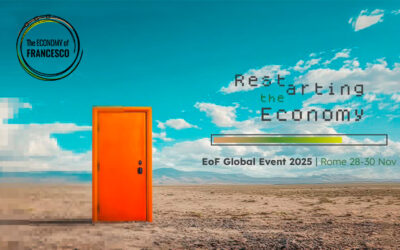Ten years of war, an embargo and the coronavirus pandemic have imposed living conditions on the Syrian population that are on the edge of poverty, leading to the re-emergence of child labour and exploitation. “After almost a week of quarantine, I was surprised to see one of our students selling vegetables from his car.” Thanks to one of the teachers in the “Generation of Hope” afterschool programme in Homs, Syria – part of Syrian emergency efforts – attention has turned to the growing phenomenon of child labour exploitation. According to workers there, in the past there had been some cases where adolescents were employed in manual labour. Today, however, the average age of young people employed for the sale of vegetables at markets, or as workers, barbers, waiters, working in fast food or in factories, has fallen. When parents are questioned, their answers stress how child labour is almost inevitable given the economic conditions and the uncertainty about the future. Some believe today that it is more important to learn a job instead of sheltering at home from the pandemic. Or they explain how these activities are necessary to help family budgets, which are no longer sustainable when parents’ work becomes less available. During the quarantine to cope with Covid-19, afterschool workers and teachers in Homs committed to look after the children even from a distance, although it has not always been easy. Many live in crowded houses, and the availability of digital devices and the internet is not within reach for everyone. This exclusion has fuelled children’s fragility, as well as their parents’ choice to send them to work these jobs. Because of this, during the short period of recovery in July, the Homs afterschool programme organized some meetings to investigate the phenomenon. They aimed to help people understand how important it is to choose education over child labour, even during serious economic difficulties. Those meetings showed that children, even if they do not want to work, feel a responsibility to contribute to family finances. They also fear that if they refuse to work, employers could harm their parents. The afterschool centre has been closed due to coronavirus cases climbing again, but as soon as possible, workers and teachers will resume their work. They will be well aware of how it can help to combat the practice of child labour and ensure that children in Homs receive the support and the appropriate education to build their future.
From the Amu website – Action for a United World




0 Comments